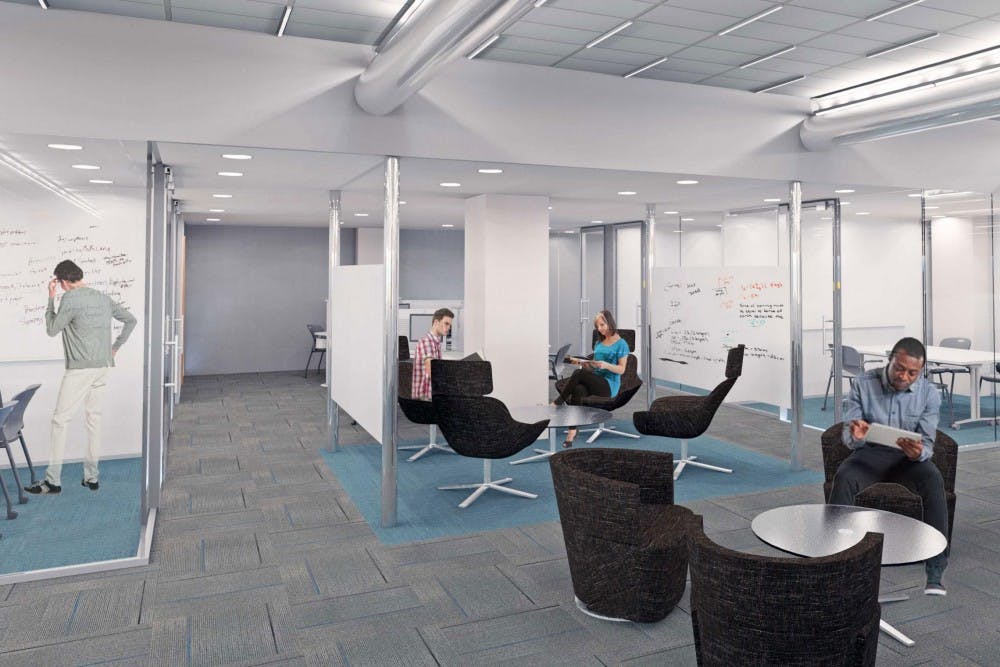A new advising center is coming to the second floor of Clemons Library to provide students more convenient access to personal, career and academic advising resources.
Opening in 2017, the new advising center aims to provide a space where resources from multiple departments and programs are made available to students in one central and convenient location, said Maurie McInnis, University vice provost for academic affairs.
“Clemons was chosen — in concert with the library — because students wanted a conveniently located place, and a place where they would go anyway,” McInnis said.
Construction will require the closing of the second floor of Clemons until January 2017. The decision is part of the Cornerstone Plan, University President Teresa Sullivan said.
“Through total advising, we bring a comprehensive, holistic approach to advising our students, as we envisioned in the Cornerstone Plan,” Sullivan said.
In addition to other resources, a variety of departments will offer personalized office hours, University Deputy Spokesperson Matthew Charles said. The center will also expand tutoring currently provided by the writing and math centers, as well as other academic support.
“Services such as one-on-one career counseling and internship search assistance, assistance with financial services, consultation about study-abroad experiences or suggestions for pursuing undergraduate research [will be available],” Charles said.
Students have been engaged to provide suggestions and feedback to shape the new advising center, mainly through workshops and surveys. Students worked in close partnership with organizations such as Student Council, the Career Center, University libraries, academic and student leadership to gauge and incorporate student ideas, McInnis said.
"We did a lot of work shopping with students, and the student group we started with was Student Council and especially the Academic Affairs Committee,” McInnis said.
This integration means addressing some problems inherent in bringing programs and resources together in a central place easily accessible, she said.
“Students thought of advising in a very multifaceted way, and saw that we had many entities and people that provided this advising, but that it in their minds it existed in a bunch of different silos,” McInnis said.
Students have a range of familiarity with programs available, so co-locatation could increase awareness, said Archie Holmes, vice provost for educational innovation and interdisciplinary studies.
“The amount of knowledge about these silos varies per students and some students have a really good sense of what all of these were, and some didn’t,” Holmes said. “Even though we have the resource to help them with their question, they weren’t aware that it existed when they needed it.”
The advising center, which will mainly be funded by maintenance reserves and potentially donations and other University funds, will include offices, study rooms, conference rooms, tutoring spaces, general study spaces and a café. It is meant to be a flexible space to accommodate student needs now and in the future.
McInnis and Holmes encourage continuing student input on the advising center as the project progresses.
“As this continues to evolve we are happy to sit down continue to have a conversation about how things are going,” Holmes said.







